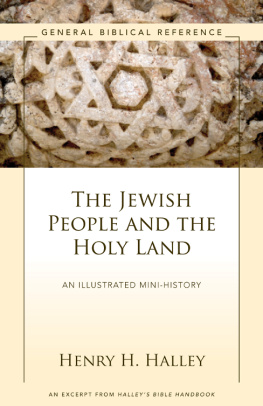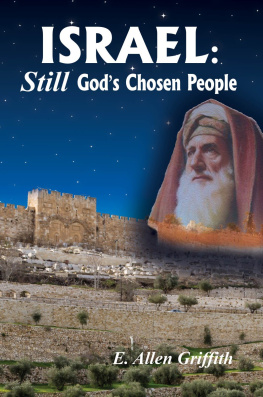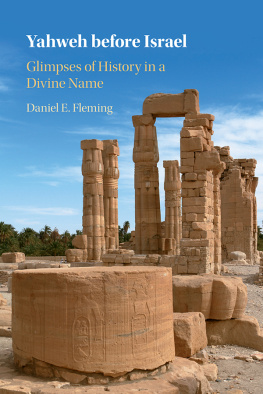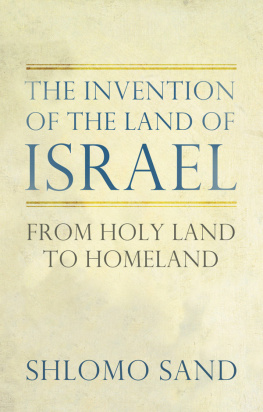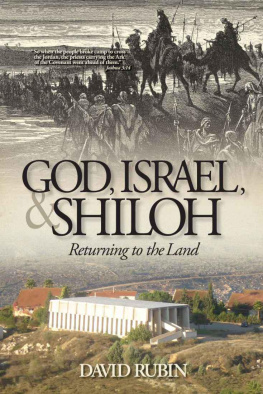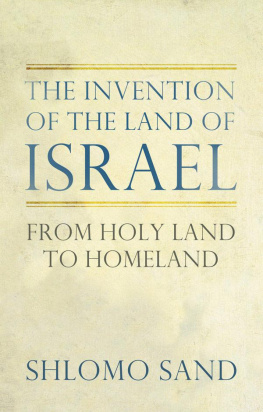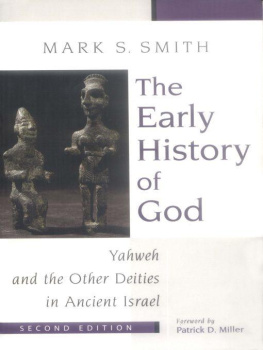Advance Praise for
FROM YAHWEH TO ZION
There is no question of the extraordinary gifts and achievements of the Jewish people and of their enormous contribution to American culture and intellectual life. Also, we all know that Zionists play a large role in United States in the media, in finance, and in international policy. In addition we know that there is rather tight censorship with respect to what may be said about these matters without ad hominen response. The fact of Gentile crimes against Jews throughout history is used to justify this censorship, much, but not all, of which is self-imposed. In my view, through their role in this censorship, Jews are paving the way for the rise of anti-Jewish feeling and perhaps much worse.
This book may be simply dismissed as anti-Jewish, but it would be far better to engage it in a scholarly, rather than an ad hominem , way. Instead of discouraging scholars from considering the evidence of Jewish crimes, I wish that Jewish scholars would support freedom of inquiry and explain their reasons for disagreeing in open discussion. Otherwise those of us who seek uncensored truth may be misled by errors and exaggerations in what is usually hidden from us and is presented only at the margins of our society.
Much in this book is offensive to Christians and Muslims as well as to Jews. As a Christian, however, I find the offense to be a stimulus to fresh thinking and repentance. What is selected to be said about us is certainly not the inclusive truth. But it has its truth, and the truth it has should not be neglected.
John B. Cobb, Jr., founding co-director, Center for Process Studies
Cutting against the grain of todays Judeo-Christian confusion, which is so emblematic of our fearful, submissive era, Laurent Guyenot dares to take up the Jewish question, complex and explosive as it is, from the perspective of a conscientious yet fearless historian.
Alain Soral, founder, galit et Rconcilation
A profound historical study of Judaic exceptionalism. It identifies the cultural and religious roots of Jewish power and Zionist hegemony. Laurent Guynots understanding of Jewish religion is mind blowing. This book is essential for the understanding of Jewish politics.
Gilad Atzmon, author, The Wandering Who?

Copyright 2018
Sifting and Winnowing Books
POB 221, Lone Rock, WI 53556
All rights reserved. No part of this publication may be reproduced, distributed, or transmitted in any form or by any means, including photocopying, recording, or other electronic or mechanical methods, without the prior written permission of the publisher, except in the case of brief quotations embodied in critical reviews and certain other noncommercial uses permitted by copyright law.
Library of Congress Cataloging-in-Publication Data
From Yahweh to Zion: Three Thousand Years of Exile: Jealous God, Chosen People, Promised Land...
Clash of Civilizations
By Laurent Guynot,
Translated and edited by Kevin Barrett
ISBN 978-0-9961430-4-2
1. Judaism, History of. 2. Zionism 3. Old Testament, History of 4. Israel, History of
Cover design by Sandra Taylor, The Graphic Page
The translator-editor gratefully acknowledges proofreading and editing help by Chuck Millar and Cat McGuire.
From Yahweh to Zion:
THREE THOUSAND YEARS OF EXILE
Jealous God, Chosen People, Promised Land...
Clash of Civilizations
Laurent Guynot
translated from French by
Kevin Barrett
CONTENTS
PREFACE
The book you are about to read is a major contribution not only to that overspecialized field known as the History of Religions, but also to its more generalized sibling, the History of Ideas. It is cultural critique of the first order. It is timely, of such relevance to current events as can hardly be overstated. And yet it could never be published by a major publishing house in any English-speaking country.
Why not? After all, in our Brave New World, destructive criticism of almost everything under the sun is permissible, if not encouraged or even required. Brutal, not particularly sophisticated attacks on Islam, Christianity, religion in general, the Pope, Mother Theresa, public decency, and indeed almost every traditional value are ubiquitous, regularly appearing in publishers catalogues and bestseller lists, and assigned as required reading in universities and book clubs. How, in such an anything-goes atmosphere, can a scholarly interpretation of ideological history be so controversial as to be virtually unpublishable? How can a book about the history of the idea of God pose such problems in the year of our Lord 2018?
The answer is simple: This book traces the evolution of the concept of God through its relationship to Jewish tribal power. And the rulers of our Western world have made one thing abundantly clear: though God may be criticized, Jewish power must not be.
But what is Yahweh, the earliest known God of the Abrahamic monotheists and their descendants, if not an embodiment and representation of Jewish tribal power in general, and that of Jewish elites in particular? How can we think about what monotheism means in the era of the clash of civilizations without considering this foundational question?
In From Yahweh to Zion , Laurent Guynot uncovers a mind-virus endemic to Judaism, yet present to greater or lesser degrees in Christianity and Islam as well: a conception of God that stubbornly clings to tribalism and all that it entails, rather than surrendering absolutely to universalism. This misconception of God as tribal shibboleth provides a powerful weapon in the ideological arsenals of unscrupulous elites, whether Jewish, Christian, or Muslim. And it may have mutated and hidden itself inside the secularist fundamentalisms that are substitute religions for the modern educated classes.
When an Iraqi Muslim bombs innocent civilians in a mosque or market, an American Christian flies a drone bomb into a wedding party in Afghanistan, or a secular French policeman forces a Muslim woman to remove her one-piece bathing suit, we may detect an atavistic tribalism driving the perpetrators of these acts to defile, subjugate, or destroy other peoples and their gods, as per the orders of the Old Testament god Yahweh. For though not all ethnocentric intolerance derives from Yahwehsuch episodes have occurred in the histories of all peoplesthe Yahwist cult has left its mark on the Jewish, Christian, and Islamic worlds, and thereby on the world at large, in an especially destructive way. Outbreaks of Old Testament fundamentalism have correlated with many of our worst conquests, subjugations, and genocidesfrom the Wars of Religion to the Native American holocaust to the settler colonial annihilations and subjugations of the peoples of Africa, Australia and New Zealand, and (more recently) Palestine. And in todays postreligious ageunofficially inaugurated by what National Medal of Science winner Lynn Margolis called the most successful and most perverse publicity stunt in the history of public relations on September 11, 2001a hidden Yahwism seems to guide the hands of allegedly secular elites as they plot their new crusades.
Recognizing our own implication in such ideas and events can be difficult, even painful. But it may also be necessary. Having come to Islam in 1993, and adopted its revisionist account of Old Testament folklore and mythology as my own, I find Guynots critique of Yahwism disquieting and challenging. But I also find it useful, especially in understanding my coreligionists lapses into tribalism and intolerance. ISIS, which lashes out at other religious approaches and their adherents as if they were false gods and idolaters, is a facile example. But many mainstream Muslims who would never dream of joining ISIS sometimes act as though fellow Muslims who take a slightly different path to God are mushrikn (idol worshippers) rather than coreligionists and fellow human beings. The takfiris of ISIS and similar groups mirror the self-righteous, Yahwistic sides of ourselves.
Next page


